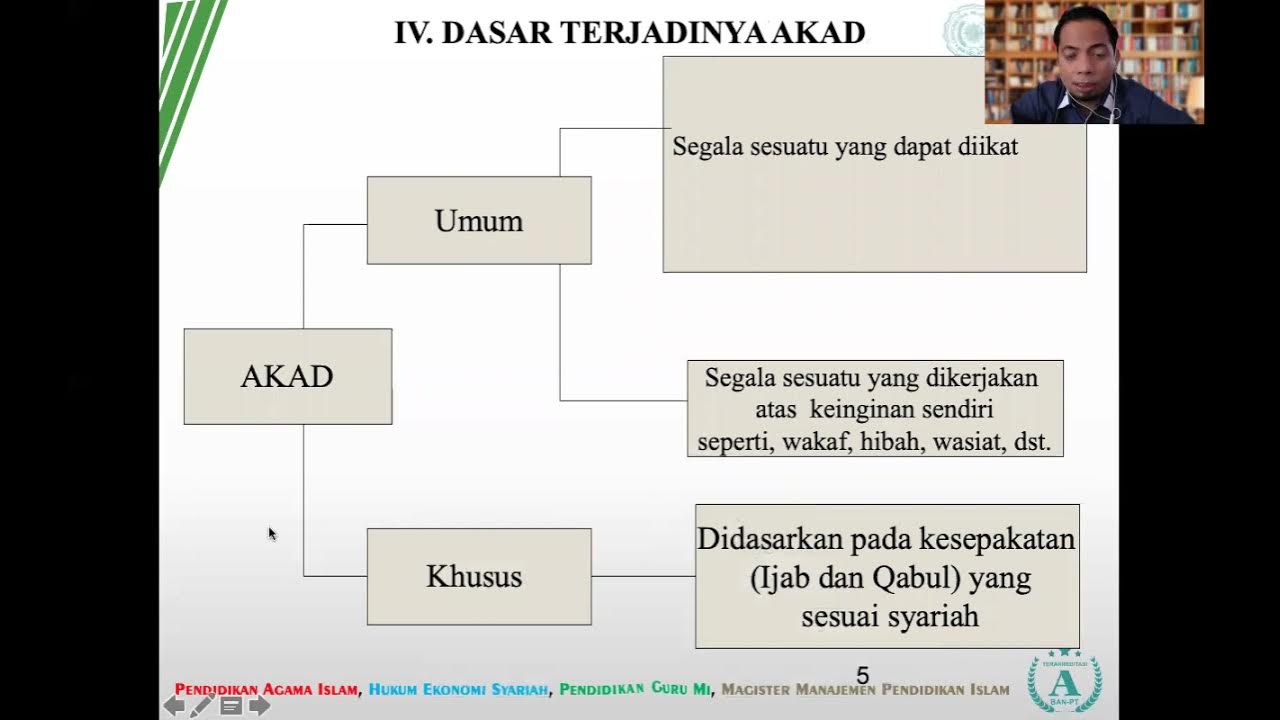Konsep Dasar Sejarah Peradilan Islam
Summary
TLDRThis lecture delves into the foundational concepts of Islamic justice, exploring the key differences between justice and court, and the roles of Sharia and fiqh in legal processes. The speaker outlines the history of Islamic justice, tracing its evolution from the time of the Prophet Muhammad (SAW) and highlighting the roles of legislative, executive, and judicial institutions in early Islam. Additionally, the lecture covers the qualifications of judges, the basic elements of justice, and the importance of studying Islamic justice both historically and in modern contexts. It emphasizes learning from the past to uphold justice in contemporary society.
Takeaways
- 😀 Justice and court are distinct concepts: justice refers to the process of resolving cases, while a court is an institution that carries out this process.
- 😀 Islamic justice is based on Sharia (divine law) and fiqh (jurisprudence), with fiqh providing deeper understanding through scholarly interpretation of Sharia.
- 😀 The role of the Prophet Muhammad (SAW) in Islamic justice was multifaceted: he was a preacher, a leader, and a judge, guiding his followers in legal matters.
- 😀 The requirements for a judge in Islamic justice include knowledge of the law, rationality, fairness, and the ability to distinguish between right and wrong.
- 😀 There are varying opinions among Islamic scholars regarding who can serve as a judge, with some allowing women to serve in certain cases and others requiring male judges for certain legal matters.
- 😀 The history of Islamic justice can be studied using multiple approaches: library research, philosophical analysis, and comparative methods across different periods of Islamic history.
- 😀 Studying Islamic justice historically helps us understand how justice was applied in different eras and how Islamic law evolved over time.
- 😀 The early Islamic state, led by the Prophet, incorporated legislative, executive, and judicial powers all held by him, illustrating the unity of power in the early days of Islam.
- 😀 Understanding the history of Islamic justice provides a framework for the current legal system and can inspire improvements in contemporary legal practices.
- 😀 The study of Islamic justice offers benefits for both personal and professional development, particularly for students pursuing law or sharia studies, as it provides insights into the foundations of Islamic legal principles.
Q & A
What is the difference between 'justice' and 'court' in Islamic history?
-Justice refers to the concept of fairness, while a court is the institution or process where cases are judged. Justice is a principle, whereas a court is the mechanism through which justice is administered.
How does Islamic justice relate to Fiqh and Sharia?
-Sharia refers to the divine law or guidance given by Allah, while Fiqh is the understanding and interpretation of this law by scholars. Islamic justice falls under Fiqh, as it involves the application of Sharia principles to resolve legal matters.
What roles did the Prophet Muhammad play in the judicial process during his time?
-The Prophet Muhammad had multiple roles in the judicial process, including being a preacher, a leader, and a judge. He provided guidance (fatwa), led the community, and resolved disputes among his followers.
What are the basic elements required for Islamic justice to function?
-The basic elements of Islamic justice include the presence of a judge with the authority and knowledge to decide cases, the parties involved in the case (plaintiff, defendant), and the legal framework to issue a verdict or punishment.
What are the essential qualifications for a judge in Islamic law?
-A judge in Islamic law must possess knowledge of the law, be rational and fair, have the ability to act impartially, and meet specific personal requirements, such as being Muslim and emotionally balanced.
What is the significance of studying the history of Islamic justice?
-Studying the history of Islamic justice helps develop knowledge about past judicial practices, provides insights into the evolution of justice in Islamic societies, and helps understand the role of Islamic justice in shaping the present legal systems.
How does Islamic justice compare to pre-Islamic justice systems?
-Islamic justice introduced reforms that were more just and equitable compared to pre-Islamic systems, with a focus on fairness and divine guidance, unlike the arbitrary or tribal-based justice systems before Islam.
What is the role of historical research in studying Islamic justice?
-Historical research helps understand how Islamic justice evolved, examining how the Prophet and his companions upheld justice, the formation of judicial institutions, and the development of laws over time.
How are the requirements for a judge's qualifications debated among scholars?
-Scholars have different views on the requirements for judges. Some argue that a judge must be male based on comparisons with leadership roles, while others, such as Ibn Jarir Ath-Thabari, allow women to serve as judges in all cases, with different perspectives on civil law and family law.
What methods are used to study the history of Islamic justice?
-The history of Islamic justice can be studied through library research, philosophical analysis, and comparative approaches, examining historical practices and comparing them across different time periods and regions.
Outlines

This section is available to paid users only. Please upgrade to access this part.
Upgrade NowMindmap

This section is available to paid users only. Please upgrade to access this part.
Upgrade NowKeywords

This section is available to paid users only. Please upgrade to access this part.
Upgrade NowHighlights

This section is available to paid users only. Please upgrade to access this part.
Upgrade NowTranscripts

This section is available to paid users only. Please upgrade to access this part.
Upgrade Now5.0 / 5 (0 votes)





